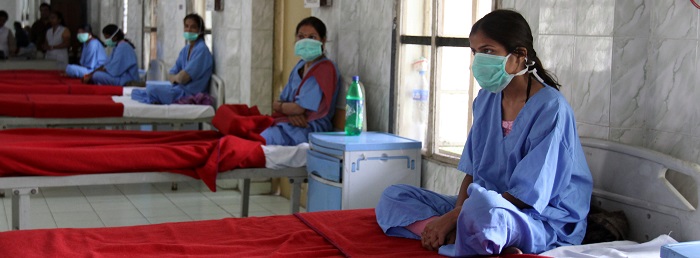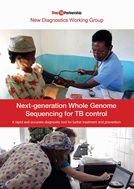
Task Force on NGS and DST
Integration of next-generation sequencing and updated guidance to test developers on next-generation DST in alignment with new treatment guidelines and future drug regimens
Advocacy factsheet on next-generation sequencing to support the introduction of this technology in TB endemic countries
Accelerating the adoption of Next-generation Whole Genome Sequencing for the rapid diagnosis of drug-resistant TB will lead to the delivery of personalized treatment and will increase survival rates. Moreover, it will improve the effectiveness of public health prevention and control strategies, thereby bringing the TB epidemic closer to an end.
On the occasion of World TB Day 2019, the Stop TB Partnership New Diagnostics Working Group (NDWG) released a new factsheet “Next-generation Whole Genome Sequencing for TB control. A rapid and accurate diagnostic tool for better treatment and prevention”. By providing key information in an accessible way for a non-scientific audience, the document aims to serve as an advocacy tool to improve broad understanding of the benefits of Next-generation Whole Genome Sequencing (NG-WGS) in TB diagnosis, thus fostering its introduction into clinical practice in low- and middle-income countries with a high burden of drug-resistant TB.
The factsheet is aimed for use by National TB programmes, patient groups, clinicians and all relevant stakeholders involved in the fight against TB in endemic settings.

Next generation sequencing for TB control factsheet
About NG-WGS
WGS based on novel sequencing technologies has great potential for rapidly identifying the bacteria complete drug resistance profile and for enabling clinicians to select the best anti-TB treatment regimen, thus improving patient outcomes and reducing the spread of the disease. Moreover, NG-WGS makes it possible to understand transmission patterns with more accuracy, thereby improving the effectiveness of public health interventions aimed at controlling and preventing the spread of TB. Recent progress in the development of portable and user-friendly next-generation sequencing instruments coupled with a significant reduction in costs, will make this technology more accessible for diagnostic laboratories in low-and middle-income countries.
The factsheet has been developed by the NDWG Task Force on Next-Generation Sequencing and DST. This was established by the NDWG in order to address one of the key strategic priorities identified by the Strategic Framework for new TB diagnostics as part of the Global Plan to End TB. The factsheet is part of Task Force commitment towards supporting the delivery of timely and effective treatment to reduce mortality and ongoing transmission and to prevent antimicrobial resistance by ensuring universal access to drug susceptibility testing (DST). Novel tests that can rapidly and simply identify drug resistance are required for implementation in decentralized settings in order to achieve universal DST and ultimately contribute to reach the targets of the WHO End TB Strategy.
